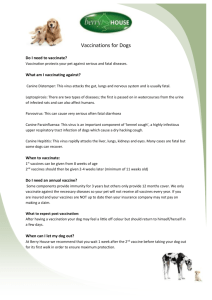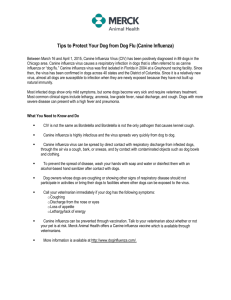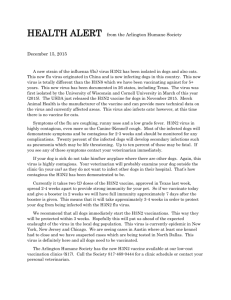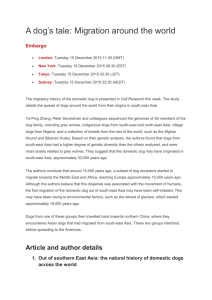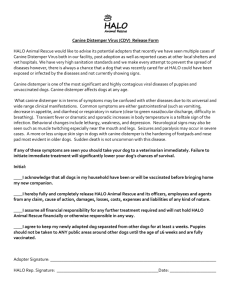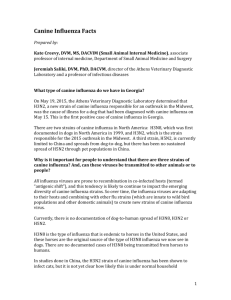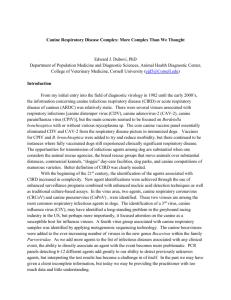canine flu
advertisement
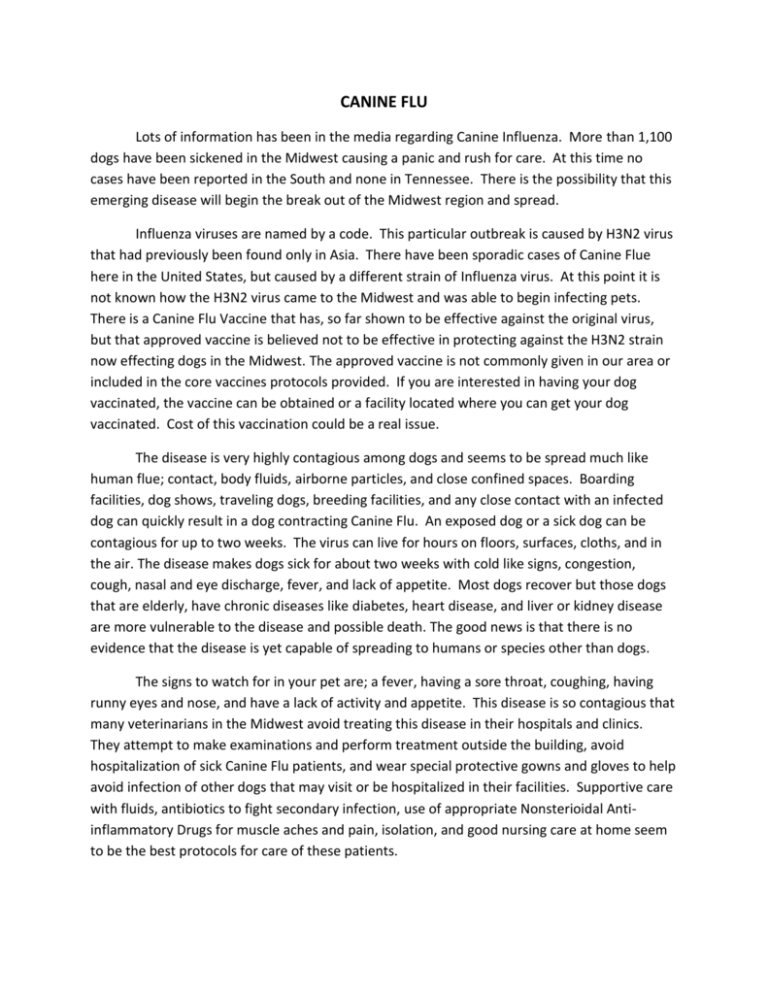
CANINE FLU Lots of information has been in the media regarding Canine Influenza. More than 1,100 dogs have been sickened in the Midwest causing a panic and rush for care. At this time no cases have been reported in the South and none in Tennessee. There is the possibility that this emerging disease will begin the break out of the Midwest region and spread. Influenza viruses are named by a code. This particular outbreak is caused by H3N2 virus that had previously been found only in Asia. There have been sporadic cases of Canine Flue here in the United States, but caused by a different strain of Influenza virus. At this point it is not known how the H3N2 virus came to the Midwest and was able to begin infecting pets. There is a Canine Flu Vaccine that has, so far shown to be effective against the original virus, but that approved vaccine is believed not to be effective in protecting against the H3N2 strain now effecting dogs in the Midwest. The approved vaccine is not commonly given in our area or included in the core vaccines protocols provided. If you are interested in having your dog vaccinated, the vaccine can be obtained or a facility located where you can get your dog vaccinated. Cost of this vaccination could be a real issue. The disease is very highly contagious among dogs and seems to be spread much like human flue; contact, body fluids, airborne particles, and close confined spaces. Boarding facilities, dog shows, traveling dogs, breeding facilities, and any close contact with an infected dog can quickly result in a dog contracting Canine Flu. An exposed dog or a sick dog can be contagious for up to two weeks. The virus can live for hours on floors, surfaces, cloths, and in the air. The disease makes dogs sick for about two weeks with cold like signs, congestion, cough, nasal and eye discharge, fever, and lack of appetite. Most dogs recover but those dogs that are elderly, have chronic diseases like diabetes, heart disease, and liver or kidney disease are more vulnerable to the disease and possible death. The good news is that there is no evidence that the disease is yet capable of spreading to humans or species other than dogs. The signs to watch for in your pet are; a fever, having a sore throat, coughing, having runny eyes and nose, and have a lack of activity and appetite. This disease is so contagious that many veterinarians in the Midwest avoid treating this disease in their hospitals and clinics. They attempt to make examinations and perform treatment outside the building, avoid hospitalization of sick Canine Flu patients, and wear special protective gowns and gloves to help avoid infection of other dogs that may visit or be hospitalized in their facilities. Supportive care with fluids, antibiotics to fight secondary infection, use of appropriate Nonsterioidal Antiinflammatory Drugs for muscle aches and pain, isolation, and good nursing care at home seem to be the best protocols for care of these patients. Of course PREVENTION is always the best part of treating this debases. Avoid gatherings of other dogs. Never introduce your dog to another that is coming from the affected Midwest area and especially if that dog is sick. Always be on the watch for the signs listed, and stay in contact with your veterinarian. Remember your veterinarian may not want to risk contamination and infection of others by seeing your pet inside their clinic or hospital. Dogs that have been exposed and are healthy or those that are sick can be infectious to other dogs for up to two weeks. Remember that it is not time to panic but to be aware and to be on the watch. The disease has not shown a significant outbreak in any areas other than the Midwest at this point. This outbreak could spread but has not yet shown a tendency to do so. The vaccine available is not believed to be effective in protecting against this strain of outbreak, but caution, avoidance of any gathering of dogs or contact with sick dogs is the most effective barrier from the Canine Flu.
